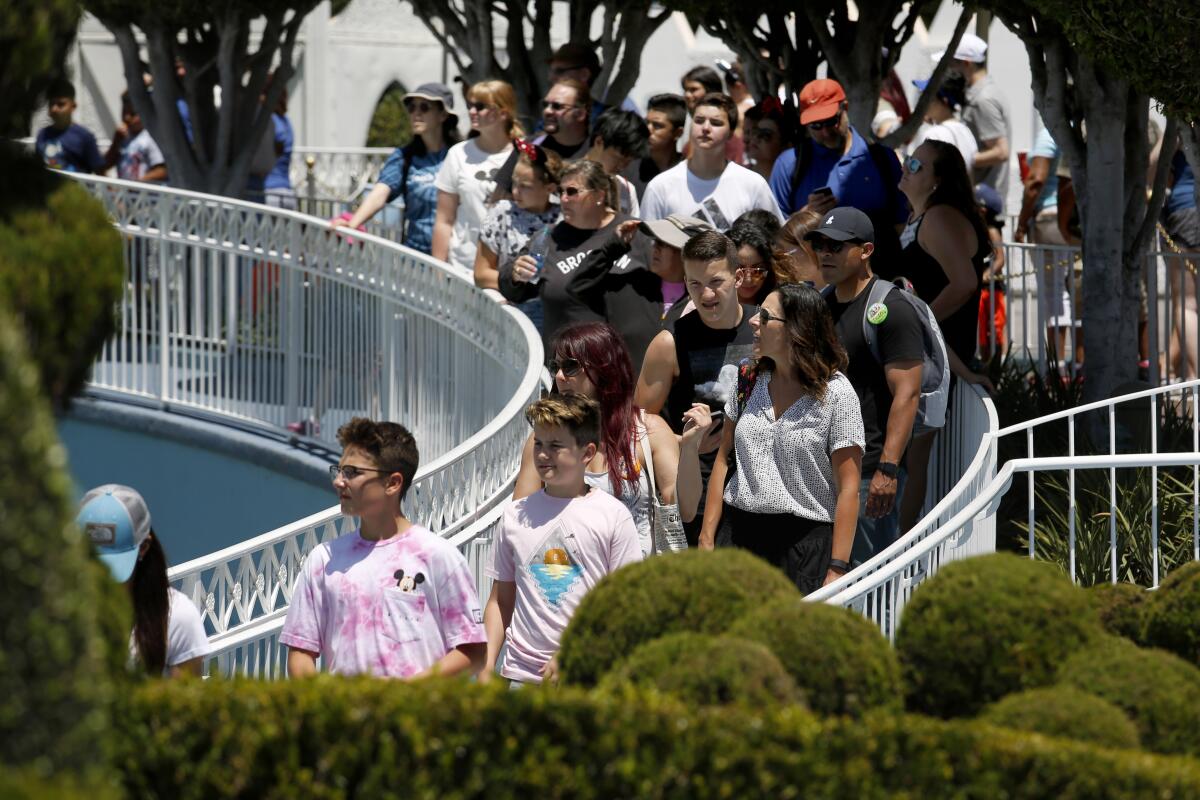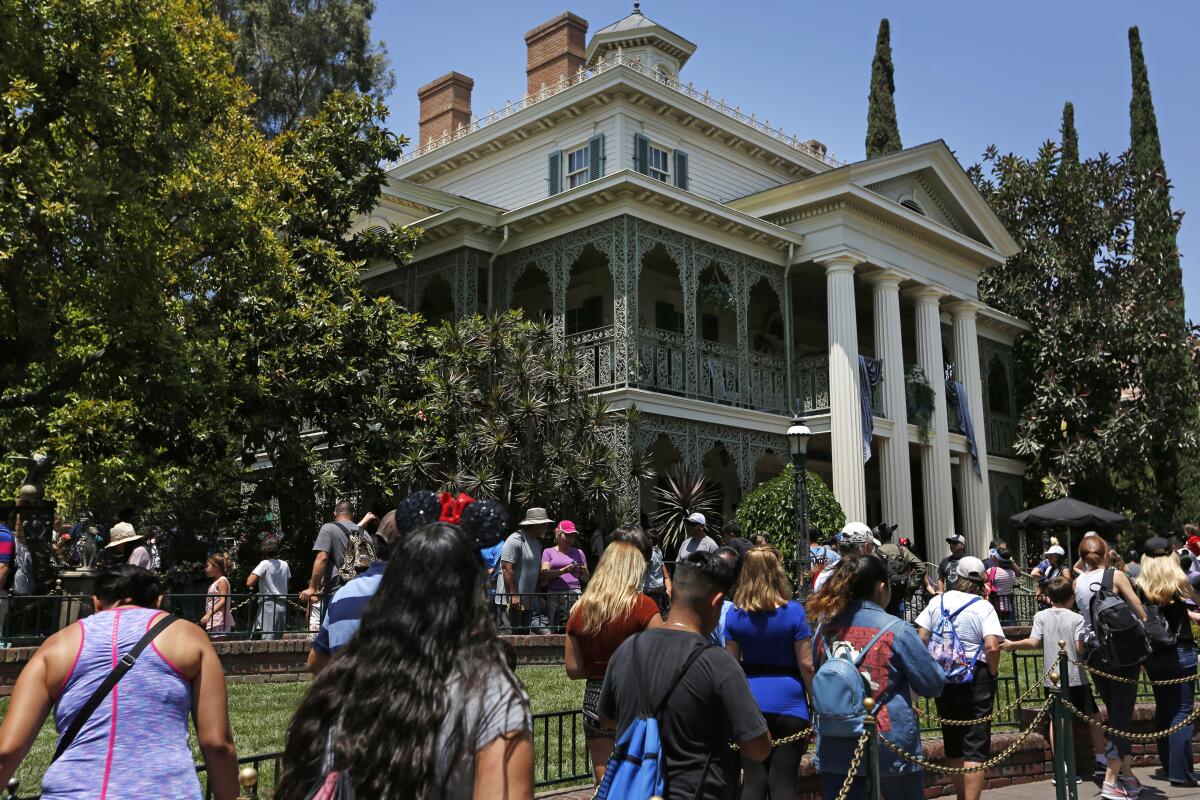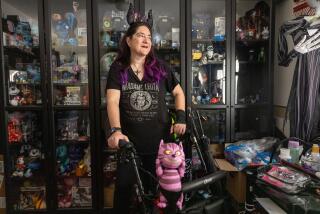Disney makes disabled guests wait too long for rides, lawsuits allege

Lawsuits against Walt Disney Co. are moving ahead in California and Florida, challenging how the company allows disabled people to access theme park attractions.
Both lawsuits, filed by the same lead attorney, Tampa-based Andy Dogali, accuse the world’s most popular theme park operator of violating the Americans With Disabilities Act by making parkgoers with autism and other disabilities wait too long to get on a ride. In court records, Dogali says he has nearly 100 plaintiffs wanting to challenge Disney’s policy.
Asked to comment on the lawsuits, Disney issued a one-sentence statement: “Disney Parks have an unwavering commitment to providing an inclusive and accessible environment for all our guests.”
The two lawsuits take aim at the 2013 decision by Disney to end a policy that gave visitors with disabilities and their family members a Guest Assistance Card, allowing them to go directly onto rides, skipping long lines.
The lawsuits say that the current policy is unfair because it treats all visitors with disabilities the same and that children and adults with autism might not understand the concept of waiting and taking turns and could become extremely upset if they are forced to wait for a ride at a noisy theme park.

Disney representatives said the old system was scrapped because it was often abused by parkgoers who hired people with disabilities to accompany them into the parks to avoid the queues. Under the current policy, visitors with disabilities are given a card that lets them return to an attraction at a scheduled time to avoid the longest lines, similar to the virtual queuing system known as FastPass.
Most of the queues for Disney rides have been upgraded to be wheelchair accessible, leaving the current policy to primarily affect visitors with “cognitive impairments,” such as autism, according to the lawsuits.
The lawsuits ask for legal costs and “other relief” that the court may choose.
“The disabled plaintiff, like other persons with cognitive impairments, is mentally and physically incapable of traveling across the park to the site of an attraction only to be told to come back later,” according to the Florida lawsuit.
One of the lawsuits, originally filed in 2014 in federal court in Los Angeles on behalf of 26 plaintiffs, was transferred to a U.S. District Court in Florida because most of the plaintiffs complained about access to rides at the Walt Disney World Resort in Florida. A judge rejected a later request by Dogali to add 69 new plaintiffs with a total of more than 200 counts.
A second lawsuit, making similar allegations, was filed in 2015 in federal court in Los Angeles, targeting the access policy for customers with disabilities at the Disneyland Resort in Anaheim.
The lawsuits do not disclose the names of the plaintiffs to protect their privacy. Instead, they are represented in the lawsuits with initials.
The California lawsuit described a 13-year-old boy from Norwalk as T.P., who loves Disneyland and has been diagnosed with autism, severe obsessive compulsive disorder, attention deficit hyperactivity disorder and having anxiety attacks. T.P. experiences a meltdown if he can’t go on his favorite rides in a particular order, according to the lawsuit.
Since Disney changed its disabled access policy, the lawsuit said, “T.P. has experienced several meltdowns at Disneyland. Two of these meltdowns were so bad [his mother] had to remove T.P. from the park due to the potential of T.P. hurting himself, [his mother], and others.”
A district judge in Florida threw out the Florida lawsuit in 2016, giving Disney a victory, but an appeals court judge sent the case back to the original district court to rule on the fairness of Disney’s policy for each individual plaintiff, said Eugene Feldman, one of the attorneys for the California plaintiffs.
A bench trial for the first plaintiff in Florida began last week, Feldman said. A verdict isn’t expected until late March at the earliest.
The lawsuit filed in California has dragged on for years in federal court in Los Angeles, even outlasting the original judge hearing the case, who died last year. The case has been reassigned to a new judge.
A mediation session that was ordered by the latest district judge in hopes of resolving the case without a trial failed, according to court records filed Feb. 6. No date has been set for a trial.
Even if Disney loses the lawsuits, Feldman said, Disney may be able to keep its current accessibility policy but would have to offer specific exceptions for the plaintiffs in the lawsuit.
More to Read
Inside the business of entertainment
The Wide Shot brings you news, analysis and insights on everything from streaming wars to production — and what it all means for the future.
You may occasionally receive promotional content from the Los Angeles Times.











